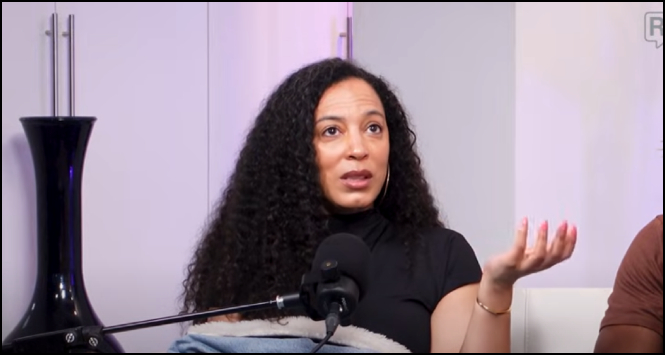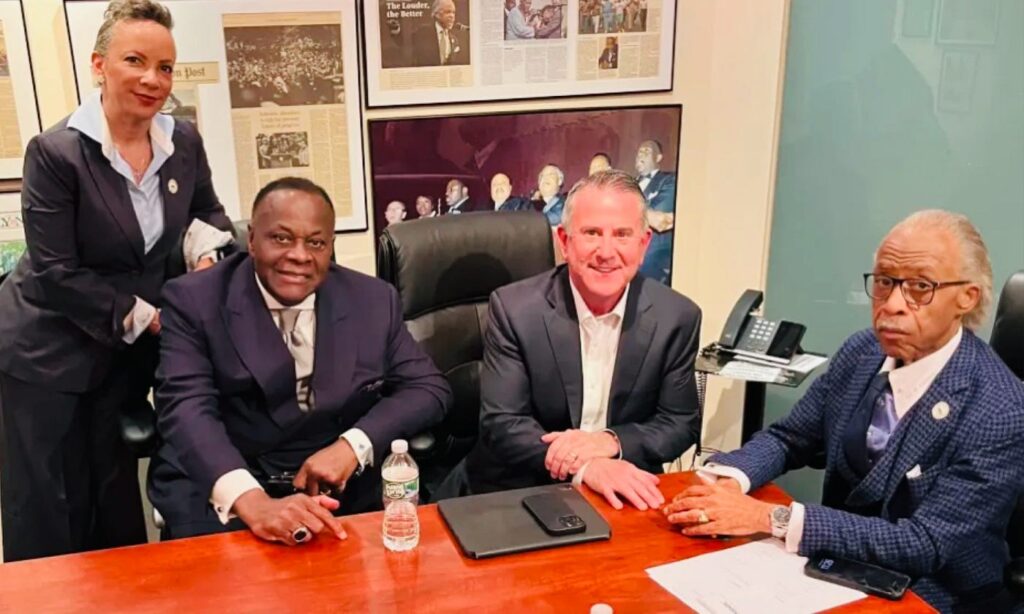Civil rights activist and commentator Angela Rye is weighing in on the backlash Reverend Al Sharpton faced after meeting with Target CEO Brian Cornell — a controversy discussed during the latest episode of the Native Land Pod with co-hosts Andrew Gillum and Tiffany Cross.
During the episode, Rye recounted how Sharpton recently posted a photo of himself alongside Cornell, Franklin Richardson (his board chair and advisor), and others following a meeting.

The post drew immediate criticism from the public, with many accusing Sharpton of prematurely endorsing Target without securing concrete commitments, especially amid heightened scrutiny of corporate diversity practices.
“People were relentless. They went off on him,” Rye said, explaining that many, including herself, were initially upset to learn of the meeting.

Some criticism stemmed from the assumption that key figures like Pastor Jamal Bryant had not been included, although it was later confirmed Bryant did attend.
When Target announced on January 24 that it would scale back diversity, equity and inclusion (DEI) commitments, customers reacted swiftly, upset that a company that had so loudly touted its diversity initiatives appeared to be backtracking.
For 10 consecutive weeks, foot traffic at Target stores has declined — down 9% year-over-year in February and 6.5% year-over-year in March, according to data from analytics firm Placer.ai. While Placer.ai notes a variety of factors were likely to blame, like weather and a drop in post-holiday spending, Rev. Jamal Bryant has driven another reason for a drop-off: a fast — from shopping.
Bryant, the senior pastor of New Birth Missionary Baptist Church near Atlanta, spearheaded a 40-day “fast” from shopping at the big-box store during Lent (March 5 to April 17). The Target Fast boycott had more than 200,000 participants, he said.
Commenting on the issue, Rye explained that Sharpton’s approach — being transparent about meetings to maintain accountability to the public — is a tactic shared by other civil rights leaders, like Reverend Jesse Jackson.
However, she acknowledged that this method has sparked broad disagreement within activist circles about whether such publicity helps or hinders progress.
“There are others who think that if you advertise what you’ve done, it’s an endorsement,” she said, cautioning that early publicizing of private negotiations could be misinterpreted. “I would invite him into considering everything not needing to be in the press, especially when the deal is not struck.”
While Rye said she did not claim to have the “right” tactic herself, she suggested a more sophisticated strategy involving younger business leaders who engage with corporations differently.
“There are young business leaders that I would invite into those conversations because they talk to those leaders at those corporations in ways that I don’t,” Rye noted, calling for more diverse voices and approaches at the negotiating table.
As of now, Reverend Al Sharpton has not issued a public response to the criticism.
